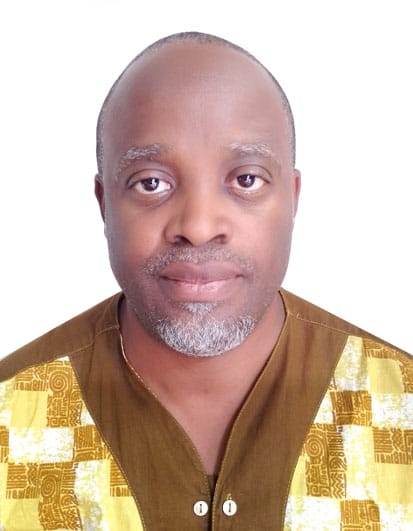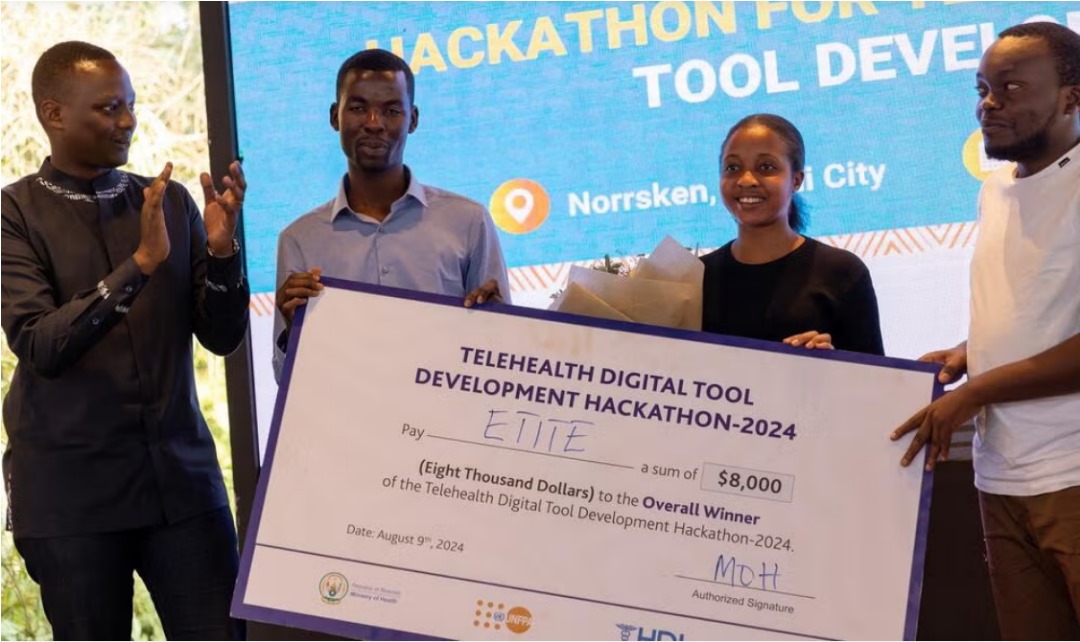By Fred Mulisa, John Mutabazi, Munzero Dianah, Ishimwe Kenia Meolla
Dario Kagambage, a father of one from Gicumbi District, used to lose entire days traveling to health centers, queuing for hours, waiting for transfer papers, and missing work. Today, with a few taps on his smartphone, he consults a doctor, receives prescriptions, and even gets lab test requests without leaving his home, a convenience made possible by Rwanda’s evolving digital health systems.
Dario Kagambage stands near his home area, where he often used to begin long trips to health centers before telehealth became available.
“I used to lose an entire day just to get a prescription refilled for my sickness,” Kagambage explains. “Now I can call my doctor in the morning and pick up my medicine from the nearby pharmacy in the afternoon. It has saved me time, money, and stress. ”

Rwanda’s first major telehealth platform, Babyl Rwanda, reached over 2 million registered users and completed more than 1.2 million virtual consultations before closing in 2023 due to the financial challenges faced by its parent company. While Babyl is no longer active, the government has taken up the mantle of digital healthcare, rolling out a national system called e-Ubuzima.
Dr Bob Kagoro, a medical doctor and health professional, explains how digital health continues to reshape care.
“Before, patients would spend hours or even days moving between facilities, waiting in long lines, or looking for transfer papers to see a specialist,” He notes. “Telehealth services like emerging virtual consultation services, patients can access doctors, request lab tests, and manage prescriptions online, saving time and reducing pressure on hospitals.”

One of Rwanda’s biggest health care challenges is a shortage of medical doctors or specialist professionals, with most doctors concentrated in Kigali. Digital platforms help bridge this gap by bringing medical advice and consultations to patients in rural and underserved areas.
“Telehealth and digital records allow us to extend care beyond urban centers,” Dr. Kagoro says. “It also makes services more affordable because patients can use their Mutuelle de santé insurance for online consultations.”
Kagambage agrees: “I used to spend 4,000 Rwandan francs on transport alone for a hospital visit. Now, I only pay the consultation fee, and I save that money every time.”
Digital health has become a strategic pillar in Rwanda’s broader development plan. During a recent UNFPA and Ministry of Health event recognizing digital solutions for health services, Minister of State for Health, Dr Yvan Butera, emphasized that digital tools are among the top five priorities for Rwanda’s health sector.

UNFPA Rwanda and the Ministry of Health award young innovators developing digital health tools, as part of efforts to expand telehealth solutions in the country
“This approach impacts not only health but also the development of the country,” Minister Butera stated.” By advancing these solutions, communities benefit, and we contribute to the well-being of the nation and the global community.”
The government is utilizing e-Ubuzima to modernize health facilities, improve patient follow-up, and support equitable access, aligning with Rwanda Vision 2050, the National Strategy for Transformation II (NST2), and Sustainable Development Goals (SDG 3). The system also sets the stage for a “virtual hospital” concept, where specialists based in Kigali can provide remote consultations nationwide.
Despite progress, digital health expansion faces obstacles. Dr Kogoro highlights two main issues: Limited digital literacy and a lack of awareness.
“Some people, especially in rural areas, don’t know whether these services exist or how to use them,” he says. “‘This lack of information, what we call Kutamenya, is the biggest barrier. We need awareness campaigns and support from community health workers to make sure everyone benefits.”
For Kagambage, the transformation is tangible. “My kid and neighbors see me using my phone to talk to the doctor, and they think it’s normal now. This is the future of healthcare, and we’re living it today.”
Digital health in Rwanda exemplifies how technology, policy, and innovation can enhance access, efficiency, and equity in healthcare, facilitating the nation’s progress toward universal health coverage and broader development objectives.




